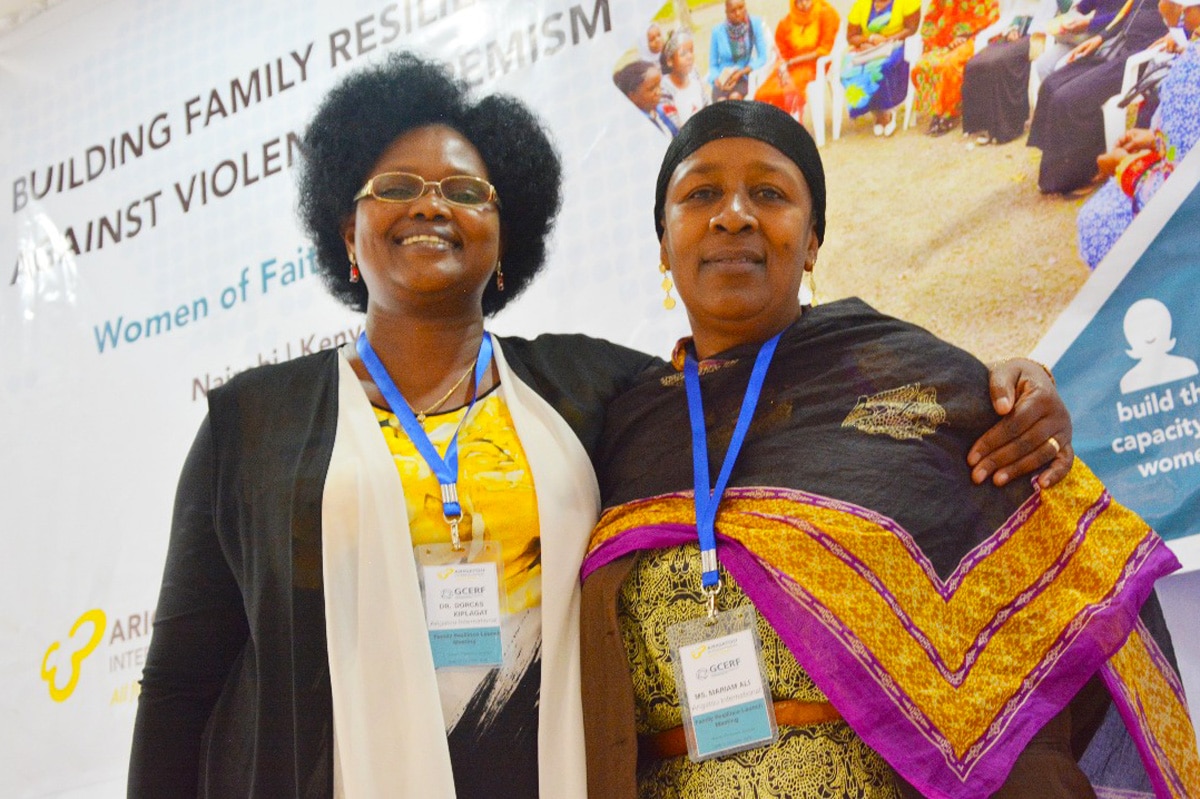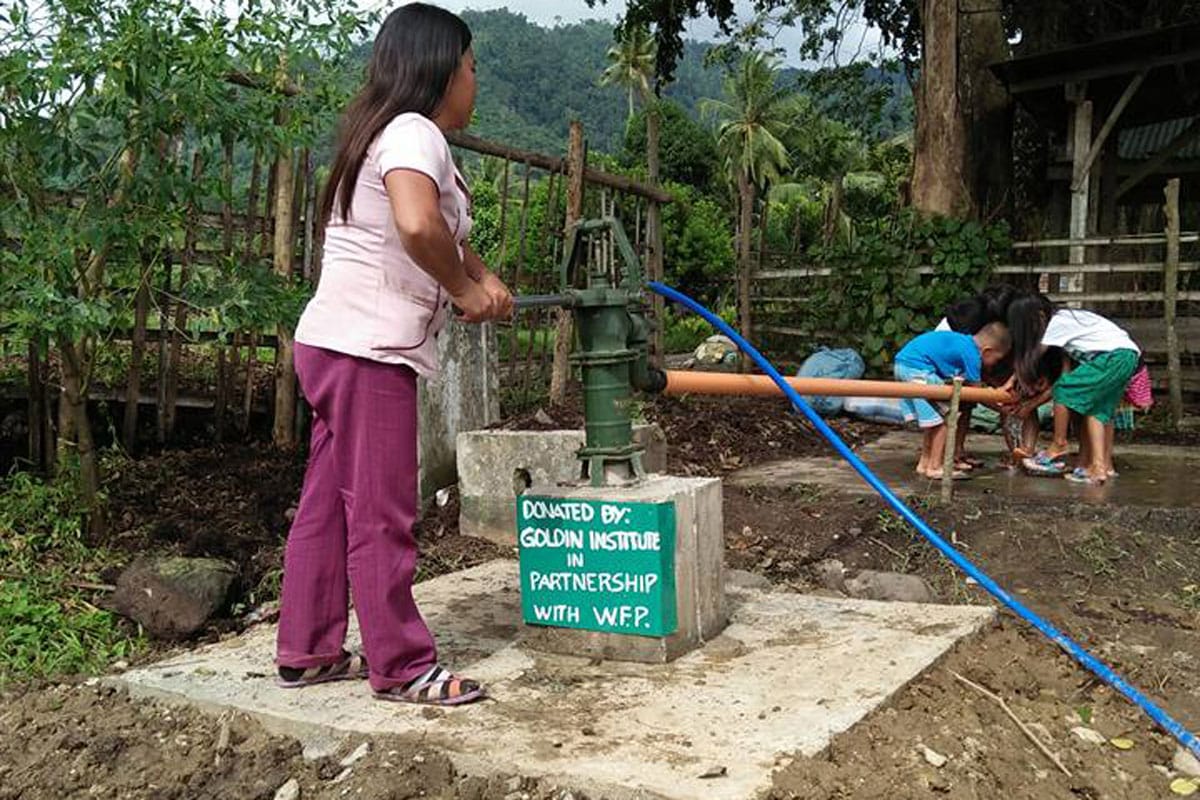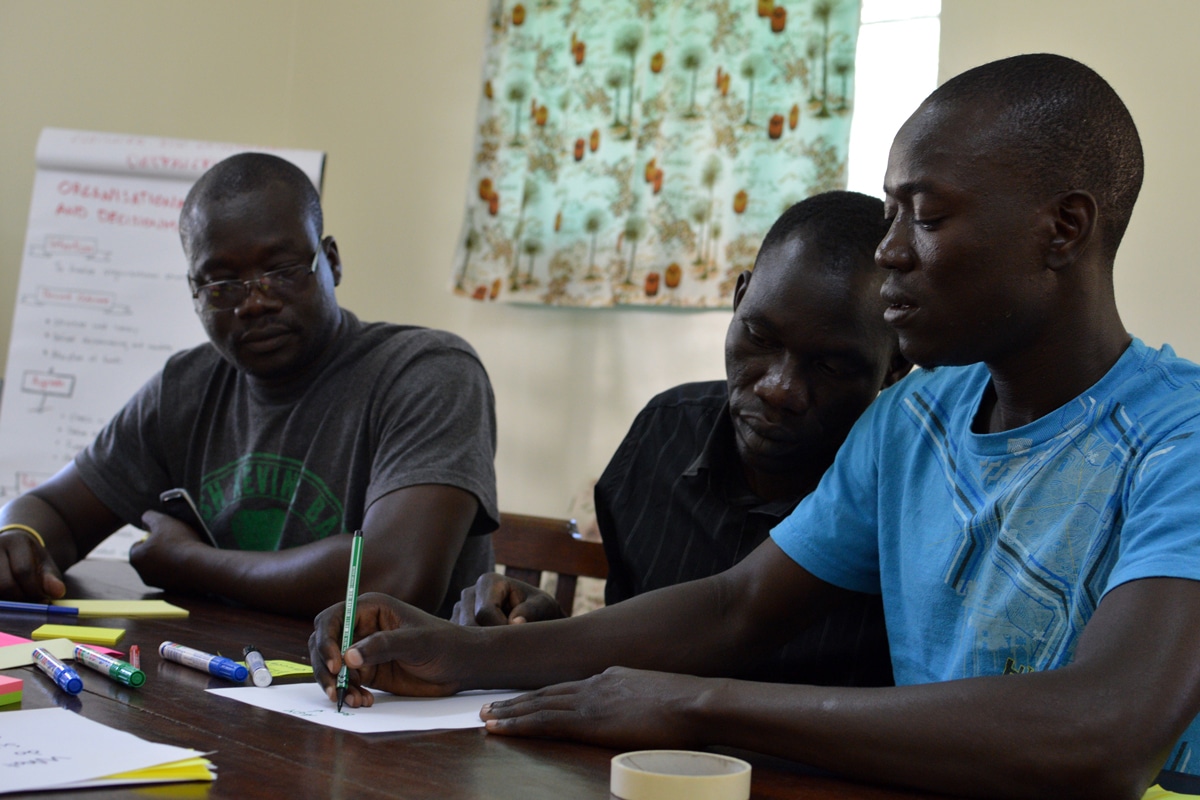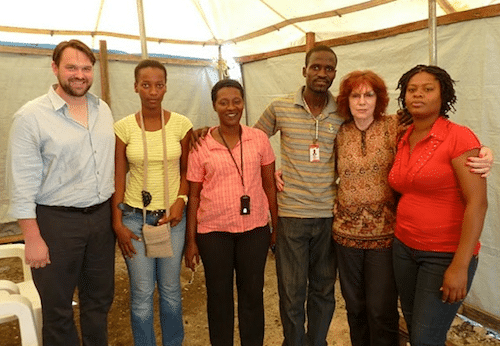Women of Faith Building Resilience in Kenya
GATHER alumnus Mariam Ali Famau in Kenya recently announced the launch of a new program that will play an important role stopping the recruitment of young women for terrorist organizations and planting the seeds for long-term prosperity in one of the world’s most impoverished areas.

Working closely with Dr. Dorcas Kiplagat and Arigatou International, longtime partners of the Goldin Institute, Mariam launched the new initiative, called Women of Faith in Action: Building Family Resilience, for women ages 18-35. The program will empower its participants to teach others and amplify its effects to a broader population.
Interviewed just a few days before the program’s launch, an excited Mariam said:
Soon the program will start and we shall have 100 to 110 women participating. They will be trained and they will go back to the community and train children from age of 18 and below. First we shall have a stake holders forum and then the selected women will be trained, and after the training, we shall have a sustainable IGA (income generating activity) community support program.
Mariam lives and works in Majengo, an impoverished but resilient community on the outskirts of Nairobi, and designed Women of Faith in Action for single women who are influential in their communities, both Muslims and Christians, the majority from the Swahili-speaking community. Most of the women in this area have no income or prospect of gainful employment, sustaining themselves by selling second hand clothes or snacks at a market place, a state of desperation that leaves them vulnerable to radicalization and recruitment for terror organizations based in Somalia across the border. Although the organizations based in Somalia are ostensibly Islamist, Mariam explained that Christians as well as Muslims are at risk for radicalization because of their dire poverty.

A single mother with three children – two girls and one boy – Mariam is proud that she is launching these programs in her mid-50s. She traces her work as an advocate back to 1984, after she left a position at Kenya Post and Telecommunications due to the harassment of her supervisor. She started a community training program sponsored by DANIDA, a Danish organization, received support from Action Aid Kenya for other initiatives, and founded the Peaceful Innovative Organization. She empowered her participants by teaching them about women’s rights and children’s rights and how to operate small-scale businesses such as detergent-making, clothes washing and housekeeping. Her organization helped women build community toilets, essential in areas where most homes have no indoor plumbing and a service for which the women can charge fees.

For Women of Faith in Action: Building Family Resilience, Mariam plans to buy washing machines for cars and clothes as well as containers to be used for garbage collection, to create enterprises that will allow participants will be paid weekly. Participants will also learn proposal writing skills to further enable their prosperity. In addition to the 100 women participants, Mariam will include 20 teachers in the program as well. Mariam held the first planning meeting for the program on June 10.
After the participants complete the program, Mariam expects them to go back to their communities, their madrassas and schools, to help other young women.
We want to train them how we can all live in harmony. We are trying to sing the same gospel together.-- Mariam Ali Famau
Philippines Water Project Reaches 40,000 students!
Working within a coalition of members in civil society, non-governmental organizations, the military, armed guerillas and parents, Susana and her team overcame persistent challenges which still remain moving forward.
A joint report released this month from the World Health Organization (WHO) and Unicef shows sobering numbers for safe drinking water access in the Philippines. According to the numbers released, 7.5 million Filipinos are without access to sanitary toilets, while 8.4 million do not have a supply of clean drinking water.
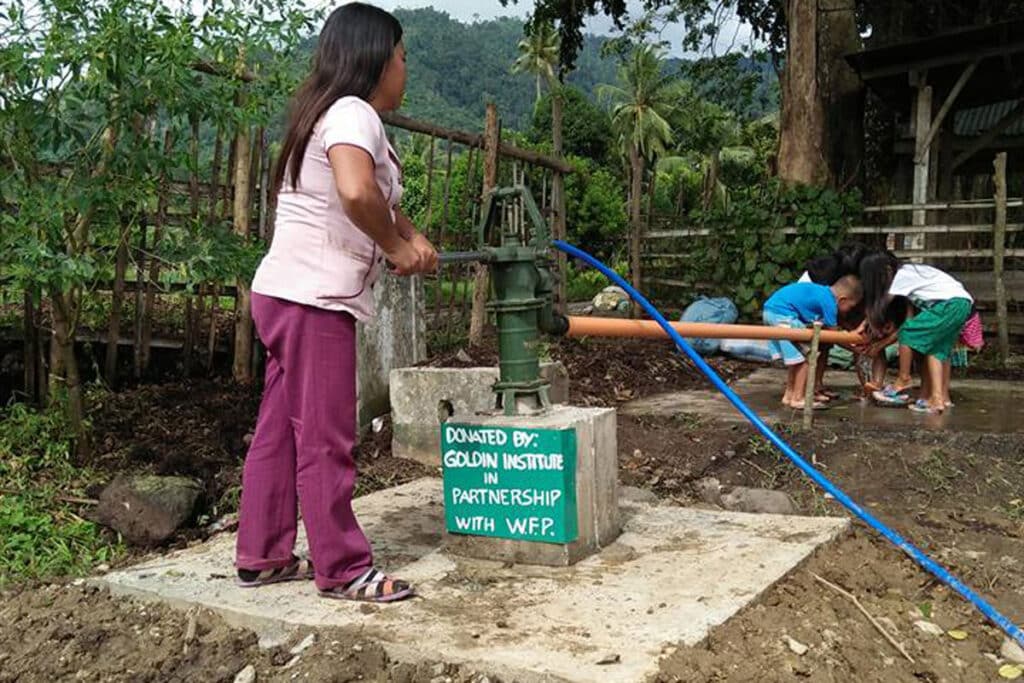
A local insurgency in Marawi City in the neighboring province of Lanao del Sur exploded when foreign fighters affiliated with the so-called Islamic State joined the fight and prompted a massive response from the Philippine Armed Forces this summer, including the imposition of martial law. When the conflict spread to nearby Maguindanao, the military stepped up its activities there as well. The conflict has literally come close to home for Susana on several occasions, as in September, when improvised explosive devices were detonated on a road she uses occasionally, wounding four people. Nevertheless, she has deftly navigated the political, economic and social hazards, collaborating constructively with all sides to provide tangible benefits to communities wracked by warfare and poverty.
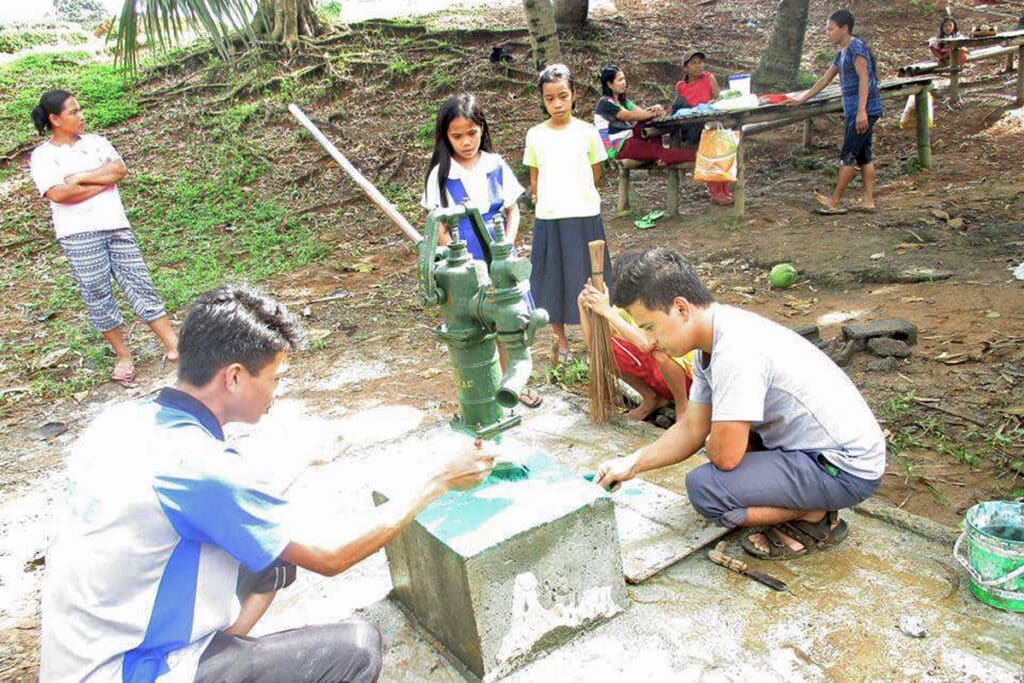
To install the water pumps, Susana works closely with military officials who have the heavy machines they need and with the rebel groups who control the territory where some of the schools are located. The Goldin Institute has been working with Susana since 2011, providing her with financial resources and opportunities to meet with grassroots leaders from around the world. This training enhanced her leadership skills and reputation, and ultimately prepared her to serve as her community’s representative in an ongoing peace process. Late last year, Susana was appointed a commissioner of the 21-member Bangsamoro Transition Commission, which includes members of the Moro Islamic Liberation Front as well as the government and is dedicated to obviating further outbreaks of violence and ultimately establishing stability throughout the region.
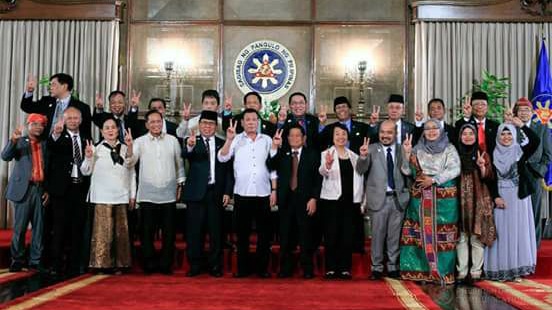
"It is summertime here in our region," Susana explained, "and our students are on vacation through the end of May. We are also dealing with flooding and as well as peace and security challenges. There are military operations happening in the areas we’ve targeted for water pump installation, as the national government is waging war under martial law."
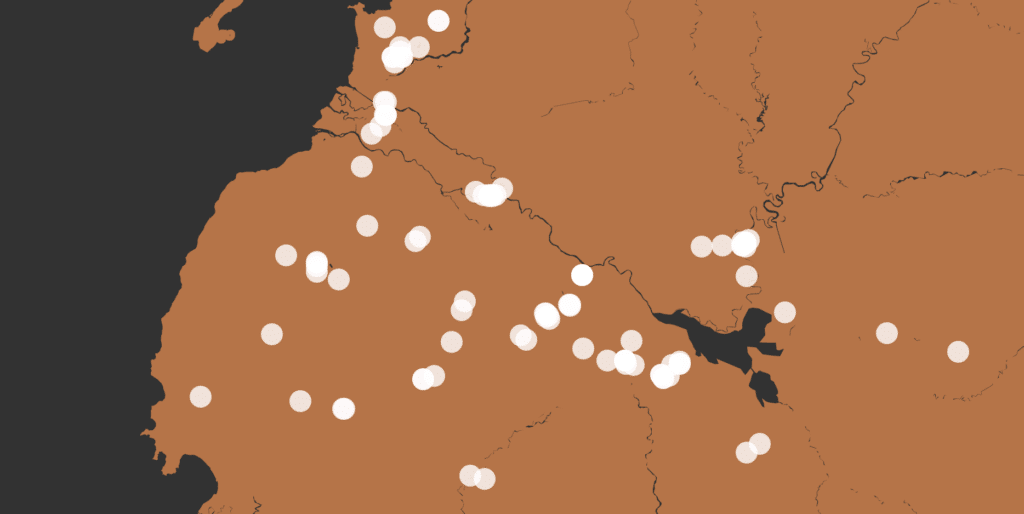
Even amidst these difficulties, progress continues as our partners have recently installed four more units, including one in a community where Muslims and Christians living and working together.
In addition to leading these water pump installation efforts, Susana has been chosen by these communities to be a representative in the national peace process since her appointment late last year as a commissioner of the Bangsamoro Transition Commission.'
This milestone was complemented by another historic moment in the project with the announcement of a $20,000 grant from the Lush Cosmetics Charitable Foundation.
Former Child Soldiers in Uganda take the Lead
by Jimmie Briggs, Goldin Institute Board of Advisors
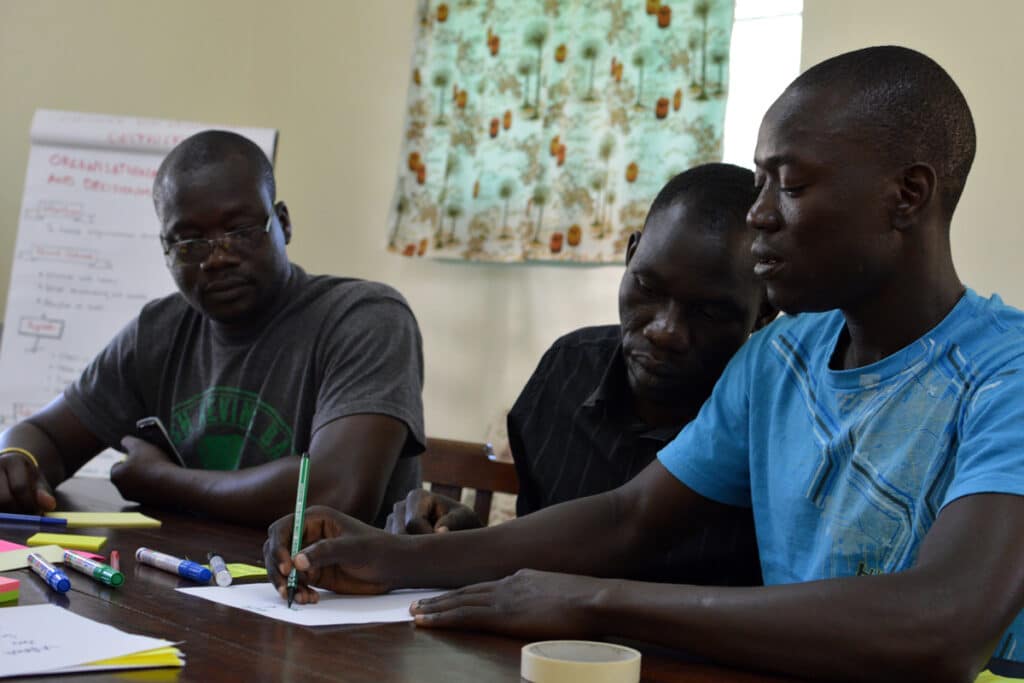
For nearly three decades starting in the late 1980’s, over 60,000 girls and boys in Northern Uganda were forcibly conscripted into fighting a guerilla war against their government, under the brutal domination of the Lord’s Resistance Army. In war that displaced 1.5 million people mainly of the Acholi ethnic group from communities such as Gulu and Kitgum, as well as the areas surrounding them, children bore an overwhelming weight not only as combatants, but also in carrying a stigma which has typically left them marginalized and overlooked as young adults today.
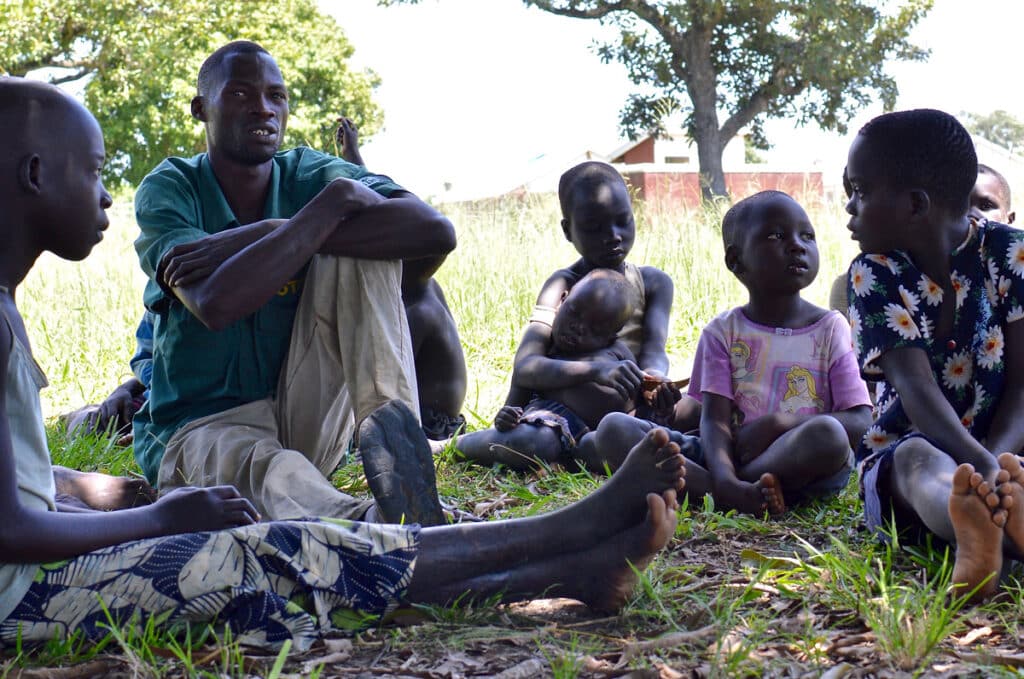
YOLRED, or the “Youth Leaders for Restoration and Development,” aims to address the challenges endured by former combatants with a key distinction which separates it from other well-meaning NGOs (non-governmental organizations) both local and international: YOLRED was founded by formerly abducted child soldiers to serve other young adults with the same shared experience. It is the only group of its kind to be designed, founded and led by members of the community which it serves.
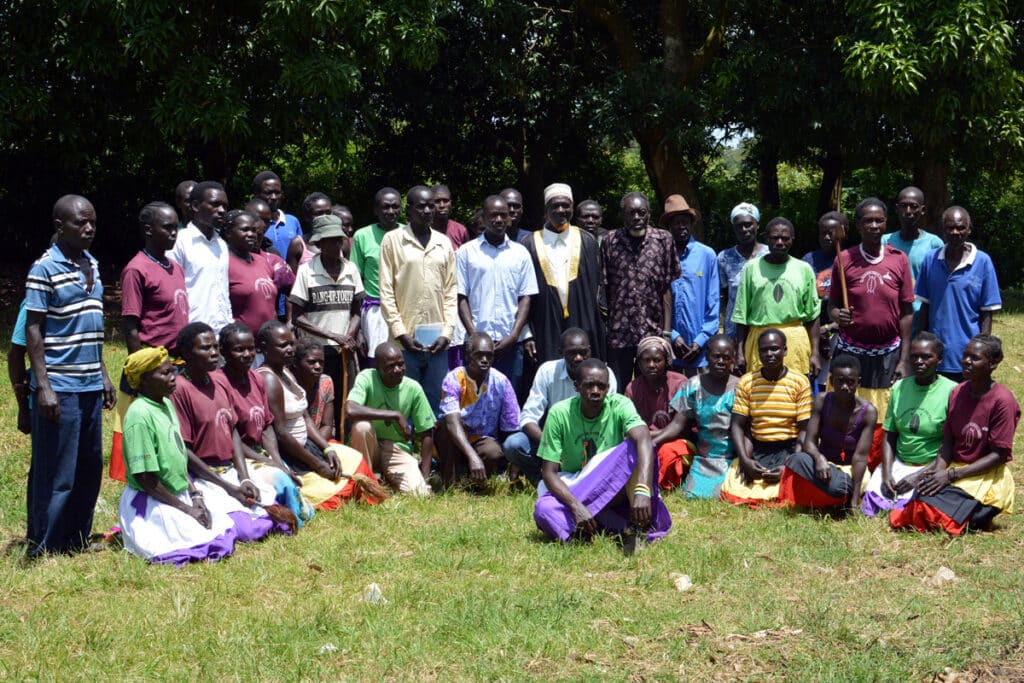
Its origins come out of mobilization of just under 200 former combatants from across Northern Uganda to capture and document oral testimony about their respective experiences in the civil war. Through a partnership with the Goldin Institute and local supporters, the core team of YOLRED led the effort to collect over 150 peer-to-peer interviews with former abductees about their experiences and insights.
Not unlike child soldiers in other countries who are undergoing the formal DDR (Disarmament, Demobilization and Reintegration) process without long-term support, many of those individuals who participated in the story collection project recounted being stigmatized, left homeless and struggling in poverty. The Goldin Institute in partnership with Arigatou International and Cartitas Counseling Training Institute worked with regional Ugandan leaders to support these child soldiers to assume agency and leadership over their own destinies.
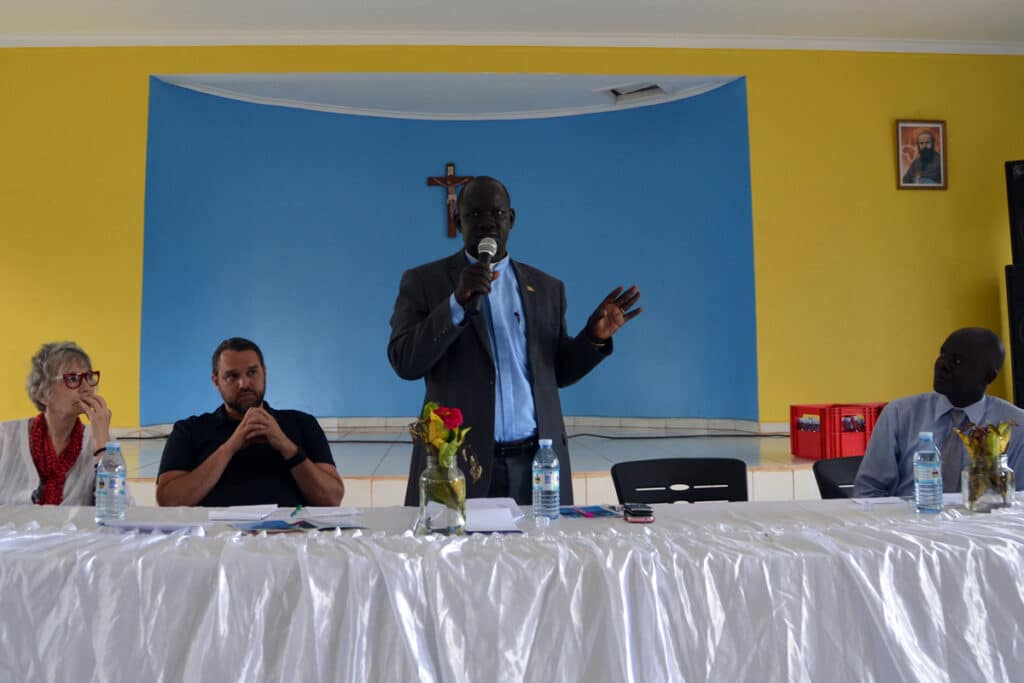
Equipped with this knowledge and the sense of solidarity developed through the research process, these community researchers produced the “Alone and Frightened” report to restore these voices to the conversation about reintegration and laid the foundation for an organization dedicated to achieving the aspirations of former combatants.
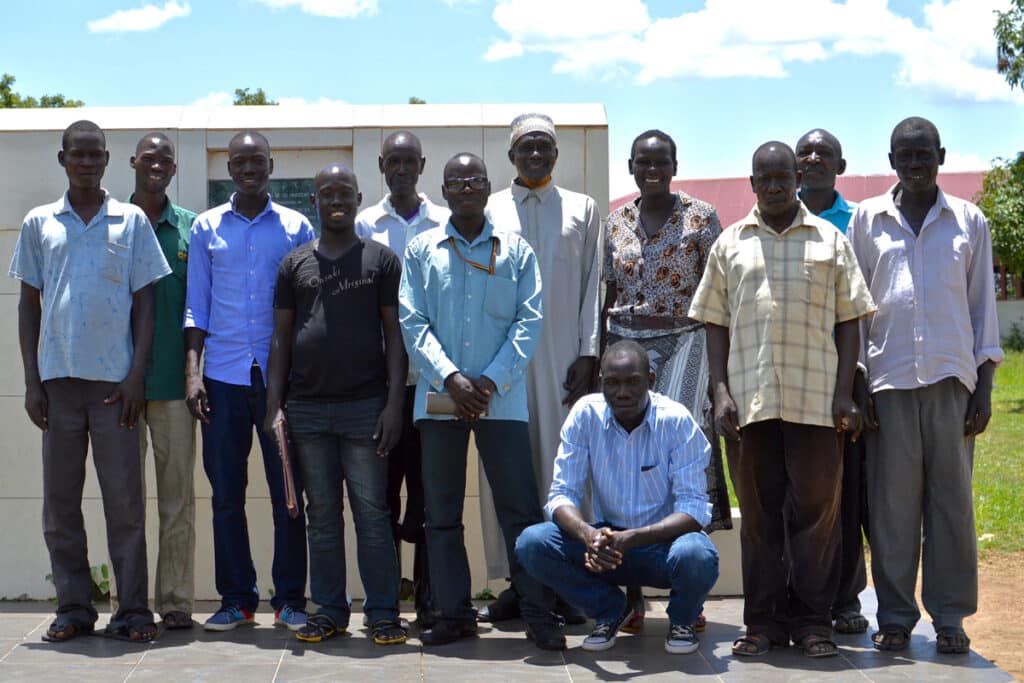
In a ceremony attended by partners from the Goldin Institute and a wide range of local partners, YOLRED was officially launched on August 27, 2016 in Gulu after years of careful planning, listening and outreach. YOLRED’s five co-founders – Geoffrey, Charles, Janet, David and Collins -- seek to support all young people who were impacted by the civil war, including ex-child soldiers, abductees, the displaced, the children of former abductees and child mothers throughout Northern Uganda. Indicators of well-being including health, education, employment and livelihood, as well as peace and security. The team is actively restoring the communities that were torn apart by the conflict and taking steps to prevent the abduction of children into conflict in the future.
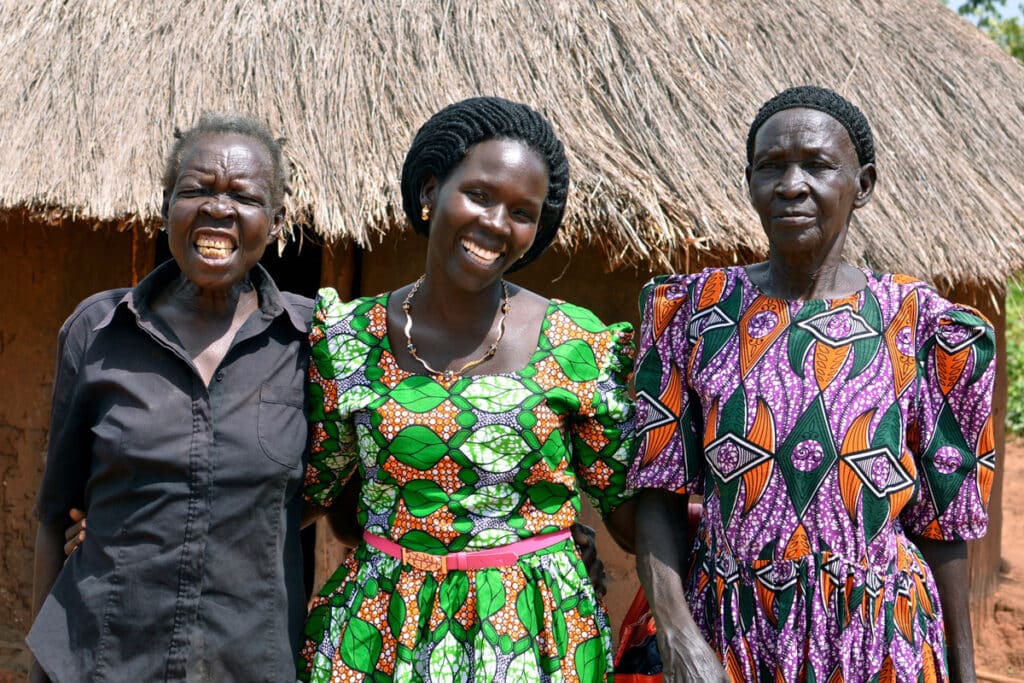
In preparing for the launch of YOLRED, the team partnered with the Goldin Institute, Arigatou International and Anorak who worked with YOLRED’s leadership to develop a five-year plan detailing its organizational structure and its primary initiatives including reconciliation, entrepreneurship and agriculture.

"I am happy for Youth Leaders for Restoration and Development, as a platform for former child soldiers. As a leader of the organization, I will [help] ensure that our problems and the solutions are implemented are locally. The output of this organization must be felt and seen in the communities." -- Geoffrey Omony, Co-Founder, YOLRED
Further, the credit union scheme is not only intended to provide low and no interest loans but also financial literacy for those without bank accounts nor a credit history. Grassoots entrepreneurs will be supported in their start-up efforts and encouraged to be peer mentors to others seeking to create businesses or authentic leadership in civil society and government. YOLRED will be critically evaluating all of its programming at key stages of its development.
Presently, the organization is applying for support from the IDEO Youth Empowerment Challenge, as well as Echoing Green for general operations as well as capacity building.
We invite you to learn more about YOLRED and how to get involved at www.yolred.org.
Rape Accountability and Prevention in Haiti
Executive Summary of the Project
Since the Jan. 12, 2010 earthquake in Haiti, women and girls living in the internally displaced persons camps face alarming rates of rape and other forms of gender-based violence. In many camps, the rate of gender-based violence has exploded to three times pre-earthquake levels. In the year since the earthquake, our partners at KOFAVIV have documented 640 cases of rape in 2010.
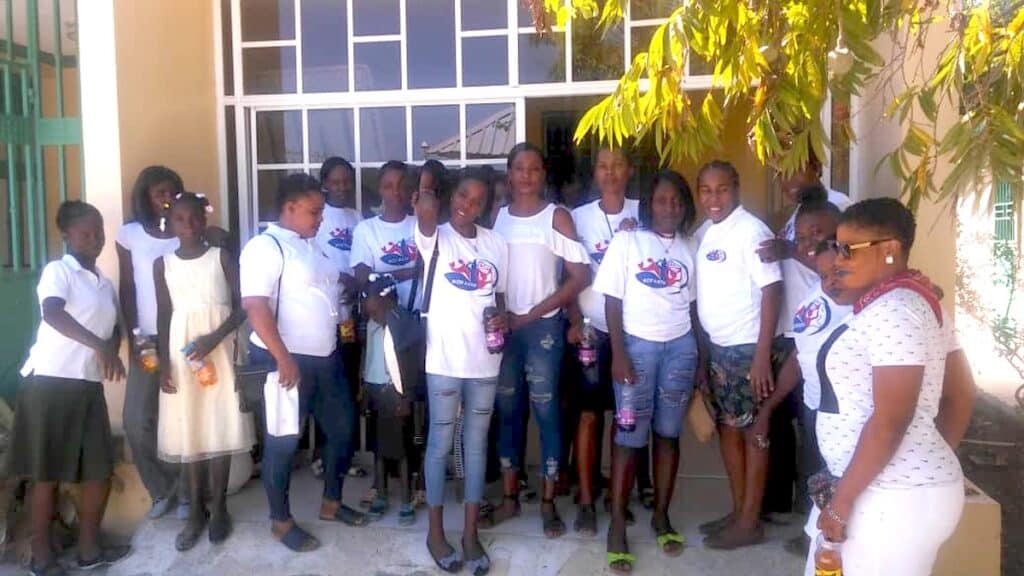
This pilot project is designed to provide security in the Place Petion community of Champ de Mars using women-led, community-based security teams to patrol the camp, discourage and disrupt incidents of gender-based violence and provide necessary escort services to vulnerable residents.
The Goldin Institute has partnered with KOFAVIV, FAVILEK, the Bureau des Avocats Internationaux (BAI), the Institute for Justice and Democracy in Haiti (IJDH) and its network of partners throughout Haiti to build and support a women-led, community-based pilot security platform in one representative displacement camp. This project builds on the strategy developed and implemented by KOFAVIV and FAVILEK, the GI's experience in creating grassroots partnerships for social change and the BAI / IJDH's capacity for legal advocacy in Haiti.
As part of the Rape Accountability and Prevention Project in Haiti, this security platform aims to prevent gender-based violence through the leadership and strategies of women's networks while the work of prosecution is ongoing. This pilot project is designed to serve as a model for community engagement and the provision of security that can be adopted by NGOs and the Government of Haiti.
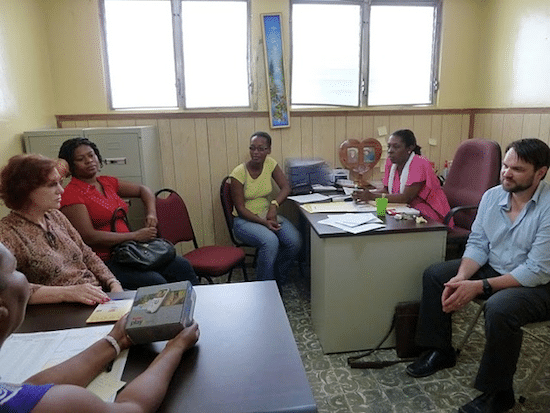
Project Rationale
The problem of GBV in post-earthquake Haiti must be understood within the broader context of the humanitarian response. There is a demonstrated lack of governmental response to sexual violence occurring in the camps. This failure to act appears to have two prongs—the Haitian Government lacks both the political will and the capacity to respond. Furthermore, despite billions of dollars being pledged by the international community for recovery, aid efforts have struggled to meet the basic needs of people living in IDP camps. Having no other options, Haitian grassroots women's groups have resorted to taking charge of their own security. Haitian women are both disproportionately impacted by the crisis and key to their country's recovery.
The reality is that grassroots women's groups have been mostly shut out from the process of crafting a response to the real threat of rapes in the camps. Meanwhile, they have mobilized their own solutions, distributing whistles to women living in camps and organizing groups of women to accompany each other to vulnerable locations like latrines, where many attacks have previously taken place. Each of the women engaged in the project brings a deep commitment to the work, and their life stories are a testament to that dedication.
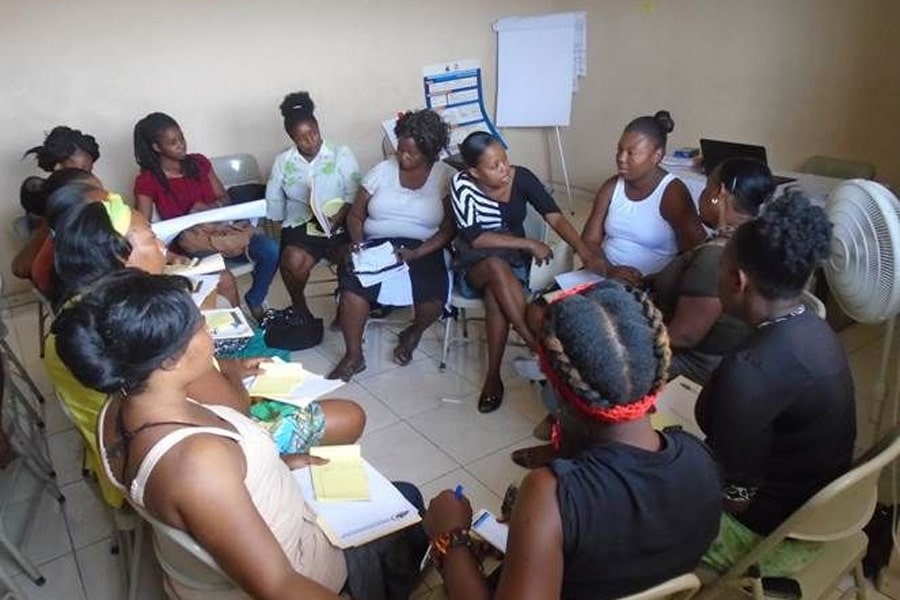
Brief History of the Project
The Haiti Rape Accountability and Prevention Project (RAPP) is designed to respond to the epidemic of rapes against poor women and girls in Haiti in the wake of the Jan. 12, 2010 earthquake. The program includes four closely integrated components: legal advocacy, healthcare, organizing, and public advocacy. RAPP provides individual victims of sexual assault the legal services they need to obtain justice and compensation, while working with allies in Haiti and abroad to transform the social context that underlies the vulnerability of all poor Haitian women to assault. The Project also aims to deter future rape by punishing the perpetrators and forcing a more effective response by law enforcement and the justice system. In February 2011, the Goldin Institute began its association with RAPP with the Camp Security and Sensitization Project.
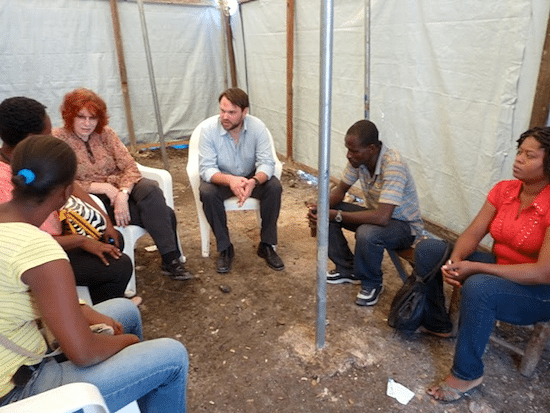
Shared Goals of the Project
This project seeks to substantially improve security and bring an end to gender-based violence in the camp where it is piloted in the Place Petion section of Champ de Mars. In addition to the immediate impact of improved security, we hope that it will provide some meaningful work for security providers and highlight the efficacy of partnering with community based groups, especially those led by women. We hope that this project will serve as a model for the Government of Haiti and relevant NGOs that will be able to scale up this important women-led, community-based initiative.
If successful, this project may also serve as a model for similar grassroots partnerships within the Goldin Institute's global network.
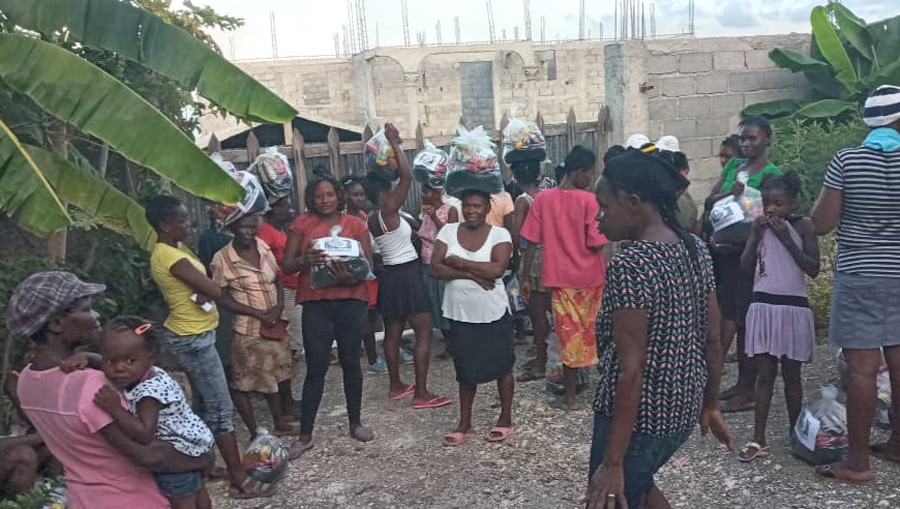
Project Outcomes
- Immediate and sustained reduction in gender-based violence in Champ de Mars.
- Improved sense of security for vulnerable people in Champ de Mars.
- Opportunity for women to design, lead and implement an innovative community based initiative.
- Increased cooperation between women's groups and the network of partners in Haiti.
- Augmented international profile for local partners through sharing the success of the project broadly.
- Opportunity to engage relevant parties in NGOs and the Government to educate them on the need and efficacy of working with grassroots groups, especially women's groups.
